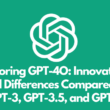Getting ready for a program manager interview?
This easy-to-follow guide will help you succeed in your interview and get the job you want. Filled with helpful questions and tips, this article will make you feel more confident and motivated to show off your skills and experience.
Learn how to handle different types of interview questions and impress your future employer. Start reading now and get one step closer to your dream job in program management!

Top 20 Program Manager Interview Questions & Answers
Common Program Manager Interview Questions
As a program manager, you will likely face various interview questions related to your experience, skills, and approach to program management. Below are some common questions that you may encounter, along with tips on how to answer them effectively:
1. Can you tell me about your experience with program management?
This question will evaluate your experience and qualifications for the program manager position. Give a concise summary of your program management experience, highlighting any notable accomplishments or challenges you faced.
For example, “I managed a large-scale program to develop a new software product in my previous role. The program involved multiple teams across different departments, and we delivered the product ahead of schedule, resulting in a 20% increase in sales.”
2. How do you prioritize tasks when managing a program?
The interviewer wants to know how you manage competing tasks and ensure the program stays on track. You should describe your approach to job prioritization and provide an example of how you have used it effectively.
For instance, you might say, “I use a priority matrix to categorize tasks based on their urgency and importance. This helps me focus on the most critical tasks first and ensure the program stays on schedule.
For example, in my previous role, I used this approach to manage a program that involved a tight deadline and multiple deliverables. We were able to complete the program successfully within the deadline.”
3. How do you manage stakeholders in a program?
This question assesses your ability to build and maintain relationships with program stakeholders. You should describe your approach to stakeholder management and give an example of how you have managed stakeholder expectations in a program.
For example, “I believe in keeping stakeholders informed and engaged throughout the program. I develop a communication plan that outlines the frequency and format of communication with stakeholders.
For instance, in my previous role, I organized regular update meetings with stakeholders and provided them with progress reports. This helped build trust and ensure stakeholders were satisfied with the program outcomes.”
4. Can you tell me about a time when you had to resolve a conflict within a team?
This question assesses your conflict resolution skills and ability to handle difficult situations. Describe a specific conflict you encountered, what actions you took to resolve it, and what the outcome was.
For example, “In my previous role, two team members disagreed about the scope of their work. I facilitated a discussion between them to clarify their roles and responsibilities.
I also provided them with additional resources and support to ensure they could complete their tasks successfully. As a result, the team was able to work collaboratively and complete the program within the deadline.”
5. What is your experience with change management?
This question evaluates your ability to manage change in a program effectively. You should describe a specific program where you encountered change and what actions you took to work it.
For example, “In my previous role, we had to change the program scope due to budget constraints. I worked with the stakeholders to identify the key program objectives and prioritize the deliverables. I also communicated the changes to the team and provided them with the necessary support to adapt to the new requirements. As a result, we completed the program successfully, meeting the key objectives within the budget.”
6. How do you handle project risks in a program?
This question evaluates your risk management skills and how you handle potential issues that may arise during the program. You should describe your approach to identifying, assessing, and mitigating risks and provide an example of how you have used it effectively.
For example, “In my previous role, we conducted a thorough risk assessment to identify potential risks in the program. We then developed a risk management plan, including risk mitigation and contingency plans. We monitored the risks throughout the program and made adjustments as needed to minimize the impact of the risks.”
7. Can you give an example of how you have managed a project budget effectively?
This question assesses your budget management skills and how you allocate resources in a program. You should describe a specific program where you managed the budget, your actions to monitor expenses, and how you ensured the program delivered value for money.
For example, you might say, “In my previous role, we had a limited budget for a program, so I developed a budget management plan that included cost-saving measures and regular monitoring of expenses. We also prioritized the program deliverables based on their value to the organization, which allowed us to deliver a high-quality program within the allocated budget.”
8. How do you motivate team members and keep them engaged in a program?
This question evaluates your leadership and team management skills. You should describe your approach to motivating and engaging team members and provide an example of how you have used it effectively.
For example, “I believe in creating a positive work environment that encourages collaboration and creativity. I regularly communicate with team members to ensure they know their roles and responsibilities and provide them with the necessary support and resources to complete their tasks successfully. I also recognize and reward team members for their achievements and contributions, which helps to keep them motivated and engaged.”
9. How do you measure the success of a program?
This question evaluates your ability to evaluate program outcomes and assess their impact on the organization. You should describe your approach to program evaluation and provide an example of how you have used it effectively.
For example, “In my previous role, we developed a set of key performance indicators (KPIs) aligned with the program objectives. We regularly monitored and adjusted the KPIs to ensure the program was on track to achieve its goals. We also conducted a program evaluation at the end of the program to assess its impact on the organization and identify areas for improvement.”
10. What is your experience with stakeholder engagement and management?
This question evaluates your ability to build and maintain relationships with stakeholders and how you handle complex stakeholder situations. You should describe a specific program where you managed stakeholder engagement, what actions you took to manage stakeholder expectations, and what the outcome was.
For example, “In my previous role, we had many stakeholders with competing interests and priorities. I developed a stakeholder engagement plan that included regular communication and consultation sessions, as well as stakeholder analysis and mapping. We built trust and maintained positive relationships with stakeholders, which helped ensure the program’s success.”
Also Read:
- Best Questions To Ask In An Interview
- Best Interview Clothes For Women
- What To Wear To An Interview: Interview Attire For Men
Behavioural Interview Questions for Program Managers
Behavioural interview questions are designed to assess your past behaviour and performance, as they predict your future performance. As a program manager, you will likely encounter behavioral interview questions that evaluate your skills, experience, and approach to program management. Below are some common behavioural interview questions for program managers, along with tips on how to answer them effectively:
1. Can you tell me about a time when you had to adapt to change in a program?
This question evaluates your ability to adapt to changes in the program environment and adjust your approach accordingly. You should describe a specific program where you encountered change, what actions you took to adapt, and what the outcome was.
For example, “In my previous role, we had to change the program scope due to budget constraints. I worked with the stakeholders to identify the key program objectives and prioritize the deliverables. I also communicated the changes to the team and provided them with the necessary support to adapt to the new requirements. As a result, we completed the program successfully, meeting the key objectives within the budget.”
2. Can you give an example of how you have managed conflicting priorities in a program?
This question evaluates your ability to manage competing priorities and ensure the program stays on track. You should describe a specific program where you encountered conflicting priorities, what actions you took to manage them, and what the outcome was.
For example, “In my previous role, we had a program with multiple deliverables and tight deadlines. We encountered conflicting priorities between different teams, which caused delays and confusion. I facilitated a meeting with the teams to prioritize the deliverables and ensure everyone was on the same page. We were able to complete the program successfully within the deadline.”
3. Can you describe a time when you had to lead a team through a challenging project?
This question evaluates your leadership skills and how you handle difficult situations. You should describe a specific project where you had to lead a team through a challenge, what actions you took to motivate and support the team, and what the outcome was.
For example, “In my previous role, we had a project requiring us to work with a new technology that the team was unfamiliar with. I provided the team with the necessary training and support and identified and addressed any concerns. We completed the project successfully, and the team gained valuable experience with the new technology.”
4.Can you explain how you have improved a program process or system?
This question evaluates your ability to identify and implement process improvements that increase efficiency and effectiveness in a program. You should describe a specific program where you placed a process or system that needed improvement, what actions you took to improve it, and what the outcome was.
For example, “In my previous role, we had a program that involved multiple teams across different departments. We identified that the communication and coordination between the teams could be improved. I developed a communication plan that included regular update meetings and streamlined communication channels. We completed the program successfully, with better team coordination and communication.”
5. Can you describe a time when you had to handle a problematic stakeholder situation?
This question evaluates your stakeholder management skills and how you handle complex stakeholder situations. You should describe a specific program where you had to run a problematic stakeholder situation, what actions you took to manage it, and what the outcome was.
For example, you might say, “In my previous role, we had a stakeholder unsatisfied with the program outcomes and threatened to terminate the contract. I scheduled a meeting with the stakeholder and listened to their concerns. I then developed a plan to address their concerns and provided regular updates on our progress. We reached a resolution that satisfied the stakeholder and ensured the program’s success.”
Technical Program Manager Interview Questions
1. Can you explain a complex technical issue you encountered and how you resolved it?
This question evaluates your technical problem-solving skills and ability to communicate technical issues effectively. You should describe a specific technical issue you encountered, what actions you took to resolve it, and what the outcome was.
For example, “In my previous role, we had a software bug that caused a system outage. I worked with the development team to identify the root cause of the issue and developed a plan to fix it. We also communicated the issue and the plan to our stakeholders and provided them with regular updates. As a result, we were able to fix the issue and restore the system within the expected timeframe.”
2. Can you describe your experience with Agile development methodologies?
This question evaluates your knowledge and experience with Agile methodologies such as Scrum or Kanban. You should describe your Agile development experience, role, and how you managed Agile projects.
For example, you might say, “In my previous role, I worked as a Scrum Master and led a team through the Agile development process. I facilitated the daily stand-ups, sprint planning, sprint review, and retrospectives. I also tracked the team’s progress and adjusted the project plan to ensure we met our project goals.”
3. How do you ensure quality in a technical program?
This question evaluates your understanding of quality management and approach to ensuring quality in technical programs. You should describe your approach to quality management, your tools and methodologies, and how you measure and improve quality.
For example, “In my previous role, we used a combination of quality assurance and testing methodologies to ensure quality in our technical programs. We conducted regular code reviews, unit tests, integration tests, and end-to-end testing. We also measured the quality of our programs using metrics such as defect density and customer satisfaction. We continuously improved our quality by using feedback from customers and stakeholders.”
4. Can you explain your experience with cloud computing and DevOps practices?
This question evaluates your knowledge and experience with cloud computing and DevOps practices such as continuous integration, continuous delivery, and infrastructure as code. You should describe your cloud computing experience, your roles in the process, and how you managed cloud-based programs.
For example, “In my previous role, we used AWS as our cloud computing platform and implemented DevOps practices such as continuous integration and delivery. We also used infrastructure as code to manage our cloud infrastructure. I worked with the development and operations teams to ensure our programs were deployed and managed effectively in the cloud environment.”
5. Can you explain your experience with data analytics and business intelligence?
This question evaluates your understanding and experience with data analytics and business intelligence tools and methodologies. You should describe your experience with data analytics, role in the process, and how you managed data-driven programs.
For example, “In my previous role, I managed a program that involved data analytics and business intelligence. We used tools such as Tableau and SQL to analyze and visualize the data. I worked with the business stakeholders to identify the key metrics and developed a dashboard that provided real-time insights into the program’s performance.”
Tips on how to prepare for technical program manager interview questions:
- Review the job description and requirements to understand the technical skills and knowledge needed for the position.
- Research the company’s products, services, and technical environment to better understand the technical challenges and opportunities.
- Brush up on technical concepts and technologies related to program management, such as software development methodologies, cloud computing, and quality management.
- Practice answering technical questions using specific examples from your previous work experience.
- Be prepared to demonstrate your technical knowledge and problem-solving skills during the interview.
Conclusion:
Preparing for a program manager interview may seem challenging, but with the right mindset and preparation, you can succeed. Believe in your abilities and showcase your skills and experience confidently during the interview.
Remember, every interview is a learning opportunity that brings you closer to your dream job. Stay positive, keep improving, and embrace the exciting journey ahead in the world of program management.
Good luck, and may your future shine bright!






